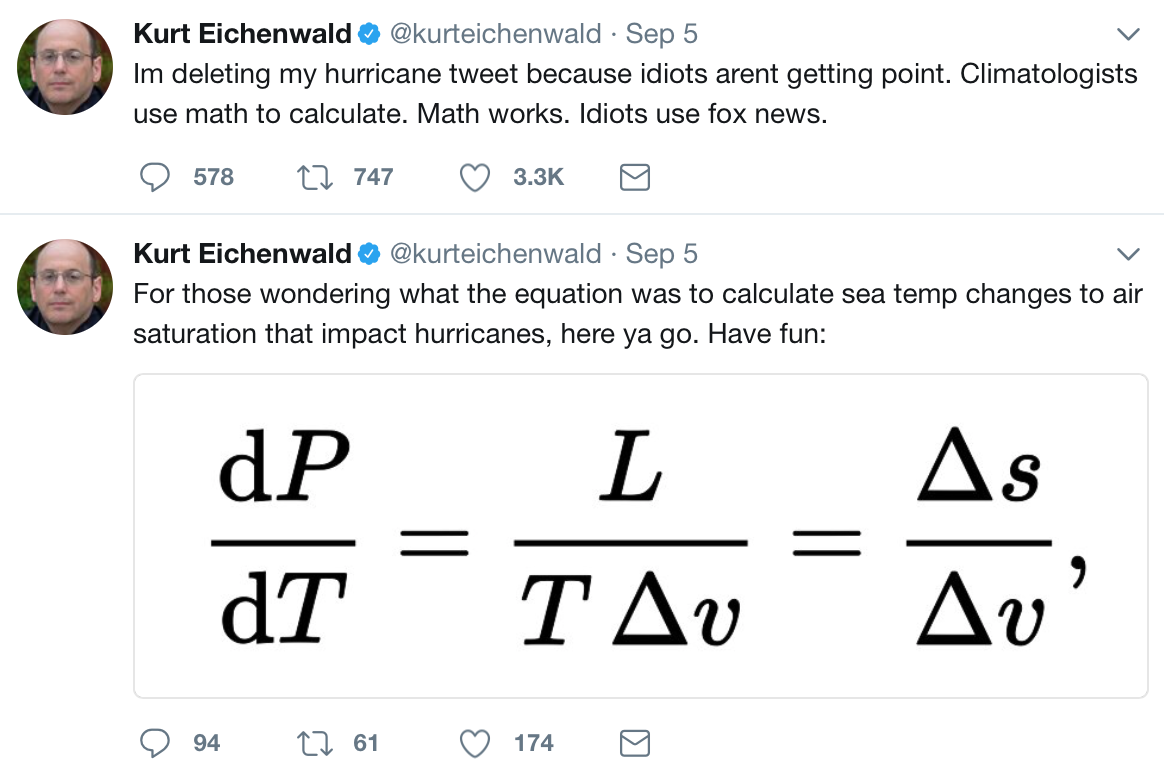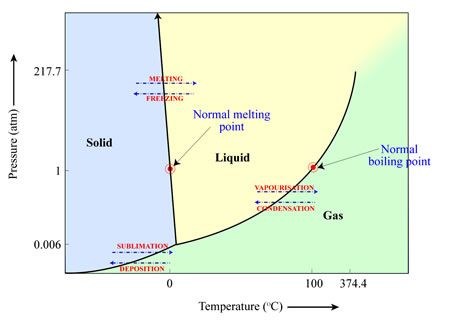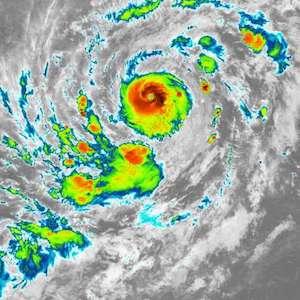Kurt Eichenwald is an interesting guy -- in the same way that a 47-car pileup on the freeway is interesting. He is, according to his Twitter bio, a contributing editor to Vanity Fair and a New York Times bestselling author. He also has written for Newsweek, where he penned one of the best essays I have ever read about conspiracy theories.
You would think that a man with such enormous influence would wield it with great responsibility. But you would be wrong. Last year, he tweeted -- without any evidence whatsoever -- that he believed Donald Trump had been "institutionalized in a mental hospital for a nervous breakdown in 1990." Regardless of your feelings for the President, a journalist simply cannot say something like that about a public official without any evidence. Not only is it unethical, it undermines the credibility of journalism. He should have lost his job(s), but he did not.
Kurt Eichenwald Promotes Junk Science
 Mr. Eichenwald is back again. This time, he claims to have predicted features of Hurricane Irma using a climate change equation. He took to Twitter to boast about his accomplishment. (See image on right. The tweet has since been deleted.)
Mr. Eichenwald is back again. This time, he claims to have predicted features of Hurricane Irma using a climate change equation. He took to Twitter to boast about his accomplishment. (See image on right. The tweet has since been deleted.)
It didn't take long for him to be rightfully mocked. Ryan Maue, a PhD meteorologist who works for the libertarian Cato Institute, expressed his disdain in a colorfully phrased tweet.
Though he deleted the original tweet, Mr. Eichenwald doubled down:

There are multiple problems with what he wrote.
 First and foremost, that is not a climate change equation. In fact, there is no such thing as a climate change equation. Climate change is modeled on computers using multiple equations, algorithms, and real-world data. The equation Mr. Eichenwald cited, called the Clausius-Clapeyron equation, applies to phase diagrams. What's that? The phase diagram for water is depicted on the right. (Credit: Swinburne University.)
First and foremost, that is not a climate change equation. In fact, there is no such thing as a climate change equation. Climate change is modeled on computers using multiple equations, algorithms, and real-world data. The equation Mr. Eichenwald cited, called the Clausius-Clapeyron equation, applies to phase diagrams. What's that? The phase diagram for water is depicted on the right. (Credit: Swinburne University.)
Imagine filling a jar completely full of water and sealing it shut. A phase diagram represents what would happen to the water given various temperatures and pressures. Though a phase diagram represents a theoretical closed system, it can be applied to real-world situations. In this case, the Clausius-Clapeyron equation tells us that the atmosphere has about 3% more water vapor for every increase of 0.5 degrees Celsius in ocean temperature.
That's a relevant equation for climate models, but it "doesn't explain this amazing event," as atmospheric scientist and University of Washington Professor Cliff Mass told ACSH in an email. And it certainly doesn't predict the "intensity growth" and "timing" of the hurricane, as Mr. Eichenwald originally claimed. The equation isn't about hurricanes, so it goes without saying that hurricane intensity and timing aren't even factors in the equation. As a clever Twitter commenter remarked, that's like claiming to predict a car accident because you know force = mass x acceleration.
The second problem with Mr. Eichenwald's tweets is his smug condescension toward actual scientists who pushed back against his bizarre claim. Note his response to meteorologist Dr. Maue:

This is a perfect illustration of the Dunning-Kruger effect, the psychological phenomenon in which an amateur believes he knows more about a topic than bona fide experts. To fully understand the equation requires an understanding of physical chemistry. An understanding of physical chemistry in turn requires an understanding of multivariate calculus. I have a PhD in microbiology and a minor in chemistry, and I don't understand what the Clausius-Clapeyron equation means. Mr. Eichenwald has a degree in political science (with distinction!), so it's possible he taught himself several years' worth of chemistry and math in a few minutes, but it's unlikely.
A third problem with Mr. Eichenwald's comments is that he conflated weather with climate. A hurricane is a meteorological event, not a climatic one. Yes, the climate affects the frequency and intensity of hurricanes, but any single weather event cannot be subjected to a climatological analysis. Despite Mr. Eichenwald using the diminutive term "weather man" to refer to Dr. Maue, in truth, a meteorologist is likely to have more insight on the inner workings of a hurricane than a climatologist.
Kurt Eichenwald Is Like an Angry Deepak Chopra
Deepak Chopra, the spiritual guru who is in reality just a phony and a peddler of alternative medicine, uses terms like "quantum healing" to make his goofy pseudoscience sound legitimate. What Mr. Eichenwald did is no different.
Mr. Eichenwald made a bizarre claim that he predicted specific features of Hurricane Irma. When called out by legitimate scientists, he copied and pasted from Wikipedia an equation he clearly didn't understand to justify himself. That is textbook junk science.
And it's precisely the sort of thing that Deepak Chopra does, albeit with far less vitriol.




